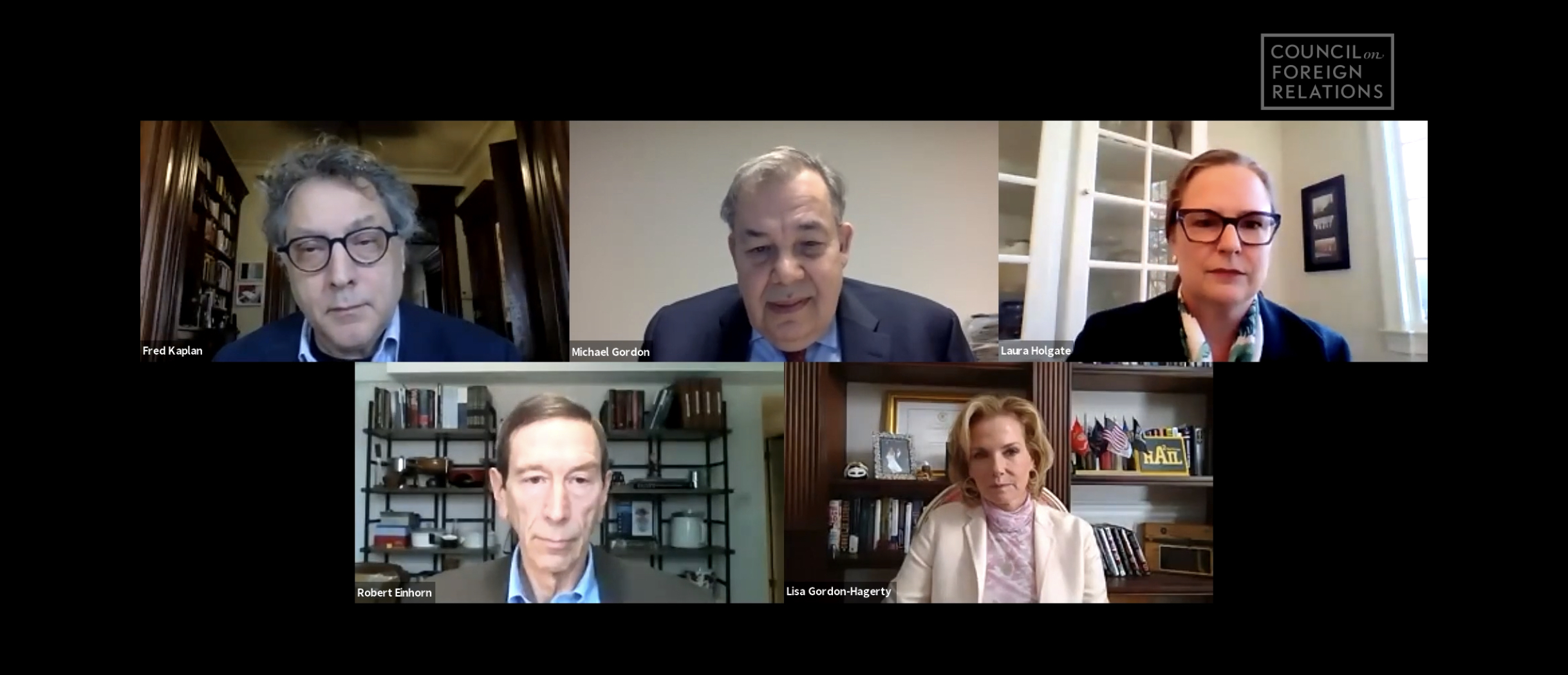NEW-YORK – The Council on Foreign Relations, one of America’s premier “think tanks” on International Affairs, recently hosted several experts at its headquarters in New York fоr a discussion devoted to reduction of the threat on nuclear weapons, an issue of critical concern to Kazakhstan. The nuclear panel, which constituted the Council’s annual “Paul Warnke Lecture on International Security” (named for the former Assistant Secretary of Defense) featured three distinguished panelists, and was chaired by Michael R. Gordon, National Security Correspondent of The Wall Street Journal.

During the discussion.
Among the major emphases of the speakers was an analysis of the status of the Nuclear Non-Proliferation Treaty (NPT), whose “Review Conference” will be held later this year . Robert J. Einhorn of Washington’s Brookings Institution characterized the NPT as “remarkably successful”. He noted that it had been signed or acceded-to by most countries, with but five exceptions: India, Pakistan, Israel, the Democratic People’s Republic of Korea and South Sudan.
Einhorn particularly mentioned Kazakhstan, as a country which had access to nuclear weapons, but had given them up. He noted that there had been no additions to the “nuclear club” in some 30 years. Any reduction in the number of nuclear countries, however, would be very unlikely. And he further mentioned the potential danger of the Treaty’s “Withdrawal Provision”.
Lisa Gordon-Hagerty has been Administrator of the Nuclear Security Administration, and Undersecretary of Energy for Nuclear Security. She expressed great concern with the rise of “non-state actors” (i.e., parties other than governments) acquiring such weapons. She shared this conviction and trepidation with all those concerned with the issue of nuclear security, and the whole fear of “what can go wrong” with the weapons of the world’s nuclear arsenals. She also believes in improving the “health” of the International Atomic Energy Agency (IAEA), as the world’s control mechanism for these dangerous weapons.
Gordon-Hagerty did note that the U.S. and Russia do seem to have somewhat different (if not mutually hostile) views on this issue of nuclear danger and control. And she noted–somewhat ominously—that there is currently no protection against nuclear “accidents”. Therefore, she feels, the P-5 (The five permanent members of the U.N. Security Council) should be actively negotiating with each other.
Laura S.H. Holgate has held several positions in the U.S. related to nuclear security, and has been the U.S. Representative to the Vienna Office of the U.N. and the IAEA.
She stated that the world has learned valuable lessons on weapons control over time, and that the IAEA has been a critical element in this process.
New technology and Artificial Intelligence, Holgate feels, must be used to work against any malicious intent, on the part of any parties.
Fred Kaplan, who is a columnist for Slate covering nuclear issues, noted that nuclear control is an issue that dates back to Secretary of Defense Robert McNamara, in 1964. He recalled that India was helped (by Canada, as this correspondent recalls) to acquire nuclear weapons, in order to provide a “counterweight” to China, which had joined the “nuclear club” in the 1960’s. Therefore, there has been a ban on new Intercontinental Ballistic Missiles (ICBM’s). This was the product then of some [rare] U.S.—Soviet cooperation.
In a final comment, Robert Einhorn “returned” to note that “denying Israel’s nuclear weapons is a ‘useful fiction’”.
Thus, in a short span of just over an hour, viewers were treated to a fine assortment of viewpoints on nuclear security, and its danger to humanity.
